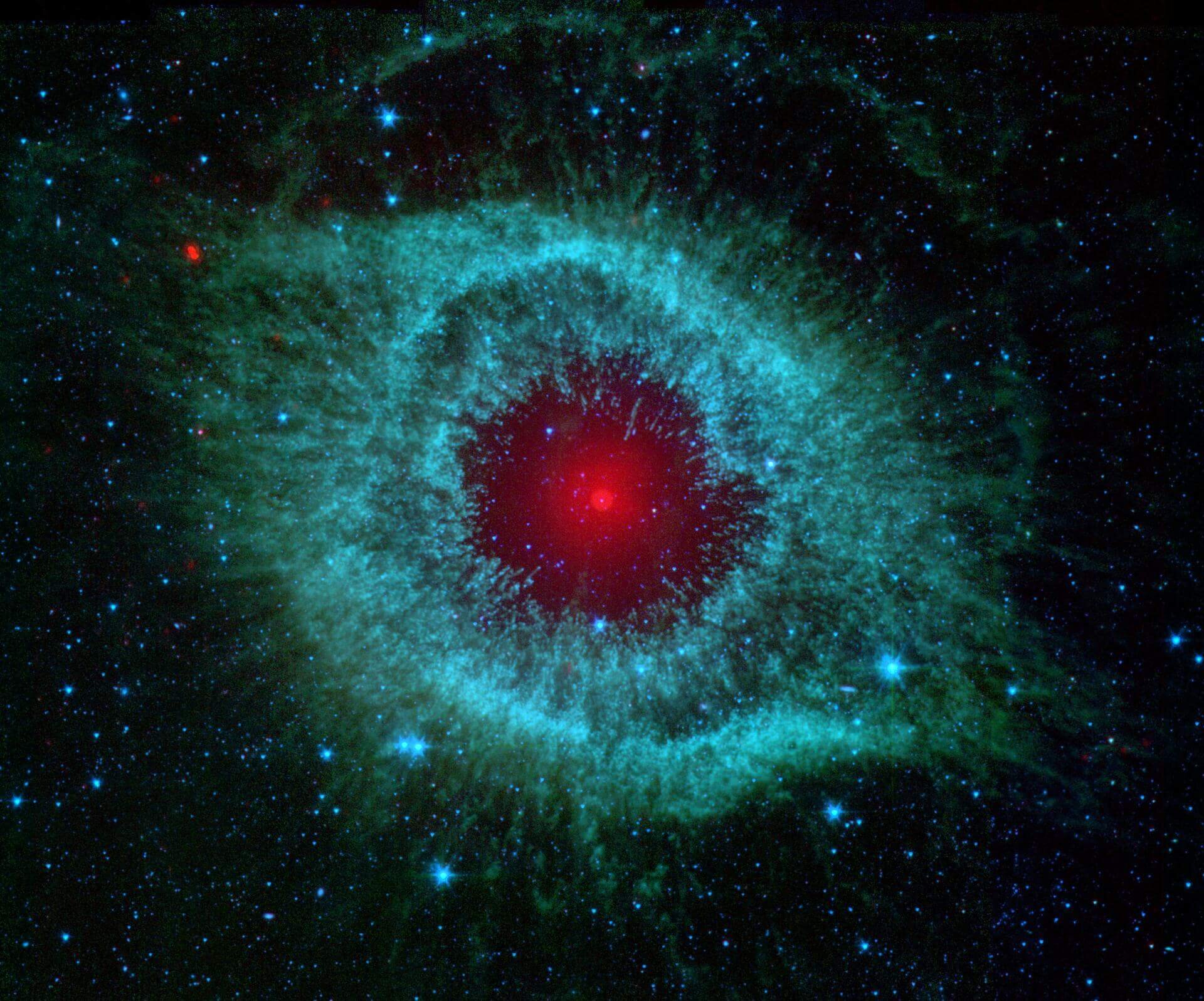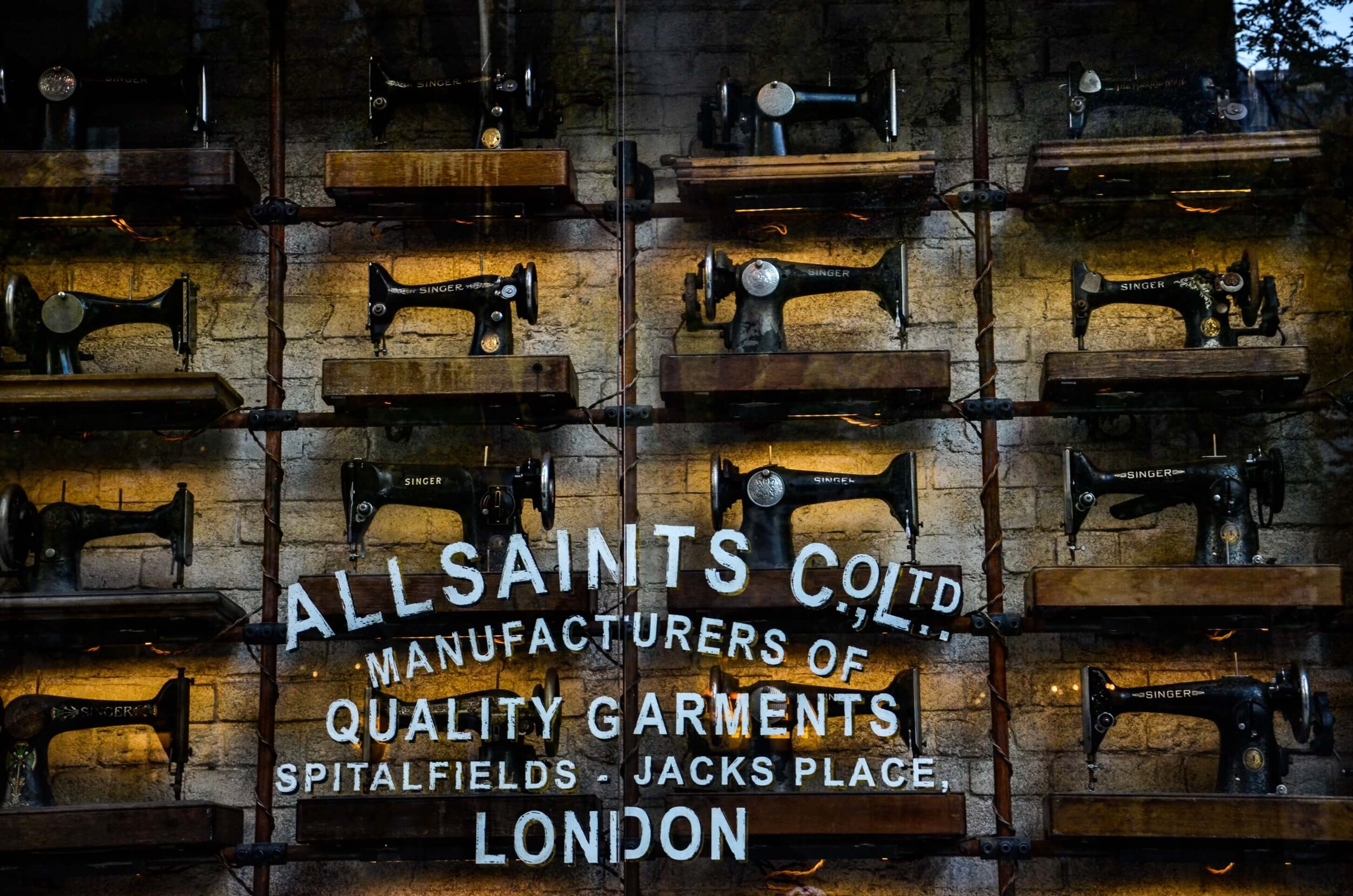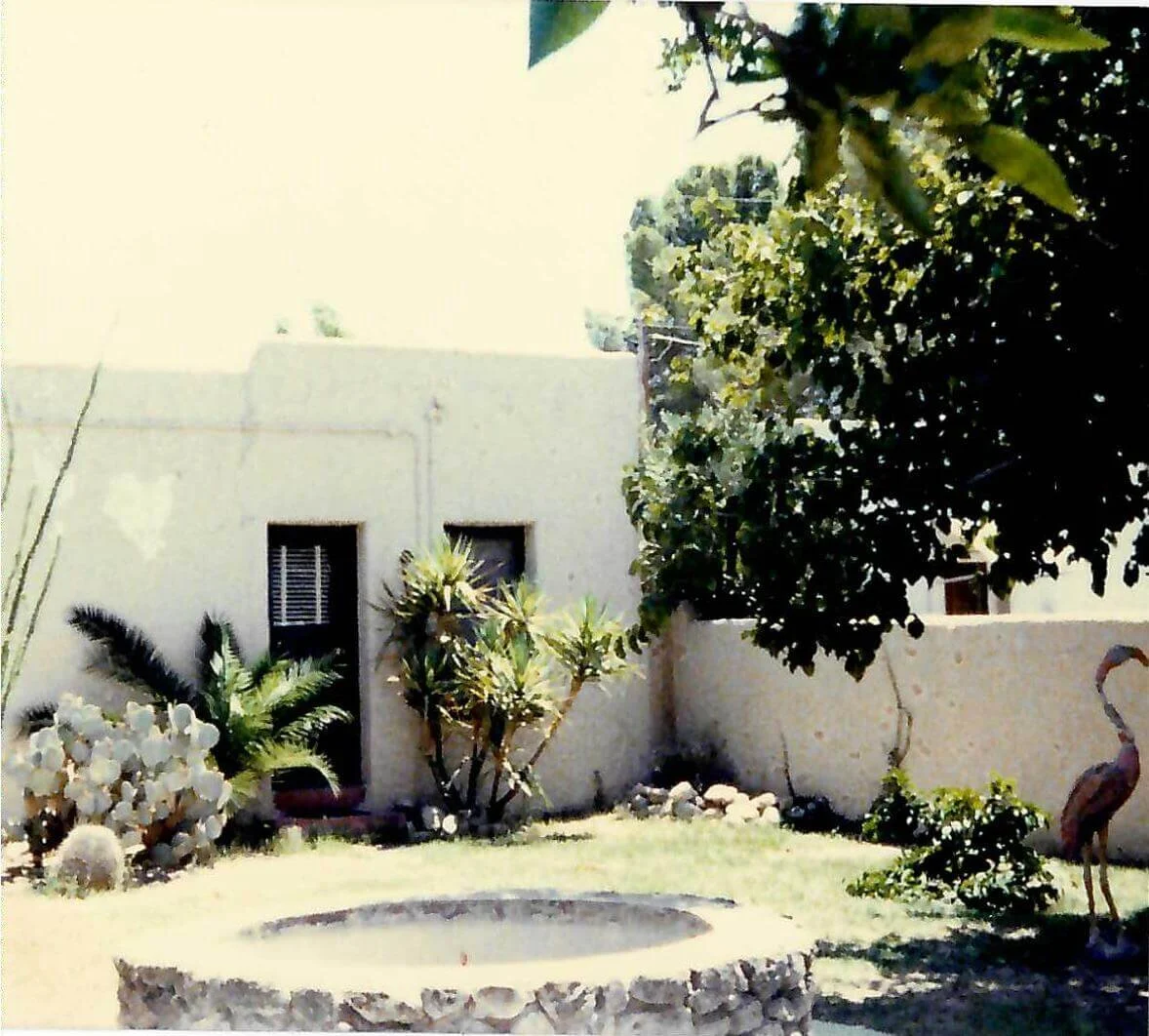
Selected Early Poems
Age 18-22
My most frantic time as a writer thus far may have been when I was between the ages of 18 and 22. I was churning out poems, or lines of poetry, most days, throughout the day, almost out of desperation. It was as if I couldn’t write something, anything, that I would sink into oblivion. In a sense this obsession was what got me through some emotionally difficult years. Below are a few of those early poems. Reading them in retrospect, I note a calmness I many of the poems that must have worked at the time as a counterweight of “what was really going on.”
Leaving the Train Behind
Black necked Harmony
Sovereign guitar, my sister’s
though once I took it
as my own, leans heavily
against the green, pale
glory buds on the wall.
The taut steel strings
suddenly stop, like the tracks
of an unused train. A huge black
Boston & Maine stalks still
somewhere in the suburban forests
of Billerica. Her horn blows hard,
howling like muffled warriors
along the tree-hacked path.
Stuck like a crusty train tie
in seventy-two, hitchhiking in Medicine Hat
for three days, Bill Ralston,
Paul Tremblay, Rudy Mitchell and I
conspired against rumors
of a youth’s severed legs
to hop Paradise’s westward freight.
The next morning, a blooming sun
busting my heart,
a thick-necked cop
gave us two seconds
to find ourselves
scarce. It was hard. It was nowhere—
an abandoned factory town,
too familiar, too strung out
for home. But we had our legs. And we ran.
“Leaving the Train Behind” arose out of a four-month hitchhiking trip across Canada and US that I took when I was 18. During the trip, I was invited by some folks I met in California to join them for a week hiking in the Sierra Nevada mountains, which I did (see picture). I hadn’t planned to return home, but I did return. I had no idea what I wanted to be, “for money,” and so I enrolled in the local community college to make my mother happy while I debated my future. At that time, my main interest was composing music, reading books of mysticism, and dreaming of a different life.
As an undergraduate, I was asked by my professor, the poet Alan Feldman, to do a poetry reading with him as part of an exchange program with other Massachusetts state universities. It was my first public reading and because it was part of an English program, the audience was quite large. My mind was numb. One of the poems I read was “Leaving the Train Behind.” The memory stands out for me as this was the first time that I received a standing ovation for a poem.
Moths
And the Lord God formed man of the dust of the ground, And breathed into his nostrils the breath of life.
When I open the screened door,
moths fly from the dirt like dust.
They flutter up, soundlessly,
over the dirty dishes and spilt wine,
to the single dim bulb
swinging slowing from its wire.
They stagger like planes
through turbulent air
or our feet dancing
across the planks of pine
to our small familiar bed.
You click off the light
with a laugh,
and the moon’s light
boxes the lone window
to the floor.
Like an old fighter
still pacing about the room
jabbing in the dark corners
of a dream, the moths lose themselves
in the shadows. They fall aimlessly
into the dishes or scrape
all night, ecstatic fish along the floor.
Down into your skin,
I descend, diminishing
into dust, flutter up
to the window, with its lush
and liquid moon, then move,
languidly,
out into the summer night.
Previously published in Choomia, 1977
This is a picture of me at 23 in a room I rented in a boarding house. I didn’t want roommates and I couldn’t afford an apartment by myself, and so this suited me perfectly. The boarding house was located near a veteran’s hospital, and so most of the other renters were veterans who had fought in the Vietnam or Korean wars. They were all fascinating people, even though some unfortunately had severe psychological problems from their war experience. The cement frog statue pictured on my bookcase made its way into a poem of mine years later, long after the frog was gone, to where I do not know.
Billerica, Massachusetts, 1976
1.
Thoughts pile up
like death-defying metal
and black junk
in the yard behind the woods of the
Daughters of St. Paul Convent
dirt Dudley Road, Billerica, along the Concord.
Scratched down words
in shadowed prayer
are confessions in a shell.
Only I hear them,
echoing listless among the pews:
St Teresa’s or Center Café.
2.
Rowing alone down the protected
stretches of the river in Concord,
fishing line dangling among the marshlands,
bird sanctuaries hidden ahead, my eye catches
light splashing on metal; and the cars
shooting by on the bridge above me
delay my mission, destroy the solitude
of Native Americans and Thoreau.
3.
When I asked a pretty black-haired nun
if the junk could somehow be removed,
she denied the existence of God.
I placed her, silently, among the tires
behind her queenless hive.
4.
And so I rowed
around the bends
to my home in North Billerica,
Mt. Pleasant Street, Room 5B.
1976, I am here by the Faulkner Mills,
piling my life in weeds of religion,
like migratory ducks
in the marshes of New England, alone.
Published in Just Pulp, 1980

Winters Drive
It’s so cold, warmth beckons
like a woman in my sleep
from the inner square lights
of closed windows. The crooked white
beams, escaping from my car,
shiver on the frozen road.
My window stays rolled
halfway down
to keep me from dying.
Still, the late-night fumes,
playing softly on my lids
their warm embalming fingers
sing me drowsy, while the dra-dra
of a broken exhaust
drives home the monotone
of being alone. Wind
shuffles the outside in.
With only five dollars left,
a dead leaf in a cold vault,
my blue bank book
plays possum
in the righthand corner
of the windshield. Fearing,
it crouches
to impersonate the missing
Autumn’s inspection sticker.
Phantom lights, suddenly,
from nowhere, behind,
press hard against my head.
Maybe police?
They hold me back
to thirty-five miles an hour.
They clog my mind.
The sharp country road corners
pass like shadows
in a life. Everything
goes wild. The enclosing trees
dance and hide, dance and hide,
but after so long, so many miles,
the car lights turn off
and I reel
down a distant dirt road.
Years go by
under a dim streetlight.
I find the hands on the wheel
are not my own. Tonight,
3 a.m., December,
I have no hopes
of home. My car
stops, staggers, sobers up,
moves on.

I worked full time during my undergraduate years as a night watchman at a scientific research plant located in the middle of a forest. I was the only one there from 11 pm until dawn, which was an ideal situation for a writer who had his life’s work to do. I slept when and where I could during the daytime after work--since my family had moved to another state—at a friend’s house, someone’s dorm room, or in my car. It was a small price to pay for freedom from commitments until I could afford my own place.
The Night Watchman
At a complex location
in the suburbs
alone
I am the night watchman
I have to learn
how not to need
to sleep
Like a dandelion at darkness
on a breezy fall night
I slowly drift
into the green black extending fields
further and further
then soon
away
I sleep sometimes
on the job
What it is that I’m supposed to be
here looking for
I don’t know exactly
but just my being here
makes some feel
safe and secure
They think I’m watching over them
like a curly haired shepherd boy
watching over a flock
of nighttime shadows
of sheep
lost in the lonely blue meadows
My flashlight doesn’t always work
the way that it was meant to
blinking to the crickets
through a sea of chirping
they come
and foghorns
from a nearby pond
sound
drowsy and distant
When I make my nightly rounds
my head is in the heavenly
blue starry soft air
There are prowlers in every bush
I whistle or click my heels loudly
for them to know I’m bravely there
guarding the institution
Some sleepy nights
there are seductive airy nymphs
who sing
from the top of black shaky pines
to try and save me
For them
I don’t need my can of Mace
I think they like a man in uniform

Age 22-25
At the time I wrote the poem “Ashtray,” I saw it as something of a breakthrough poem for me. With it I began writing in a more contemporary speaking voice—“talky-talk” as one professor put it—and more directly about my outer life. I later moved in a different direction with my poetry when I admitted to myself that what drew me to writing was not as a means to memory or the autobiographical. I was more drawn to writing as a means of escape from my actual or everyday life. I became more interested writing as an exploration of the imagination, investigating the unknown more so than transcribing the known. The derogatory terms in “Ashtray” are direct quotes from my father, who was also known to shout out at me when I was practicing the flute, to “stop with the flutie tutie or I’ll bend it across your head.”
Ashtray
I’ve always had the wrong perception
of poetry. “Weirdos” wrote it and
“fags” read it. That’s English
for cigarettes. My uncle,
a stick of a man, black hair and stationery
white skin, wrote poems
with his head up
in smoke. Burnt out at the edges of
22, I’m just like him—I hope.
My father, shot glass eyes and
cartons to go, stuck to his chair
like sea worn rope. Never wrote
good poetry. Never read much,
not mine. Use to give me
the same old lines, to
take out the trash, or
find him a match. I’d shoot back
my head like a flick of
the ash, wince at
the truth in his words.
Published in SUN, 1983
At the Staircase
It happens at the staircase, her hips
hugged in tight folds of dungaree,
that wet blue color, then the green of her blouse
lost in the green of the stairs. Her hair, long and wavey,
made me want to grab it in a fist—too real
to be explored, or to discover, the essence.
She wore those velvet clogs, brown ones, and they rang out
half wood, half metal,
with each slow step down the iron stairs.
I felt the cold ring all the way down to the bottom
of my shoe, which was dug against the bottom step. I remember
digging it deeper.
This is the way it happens in love.
The things we remember are the things someone forgets.
I forget the look in her face, her words.
I remember the folds beneath the buttocks, marking the beginning
of the thighs, what they look like against the sheets.
I forget why I said nothing, why
I had come. I remember humming loudly in my head, the pleasure
ringing as my fist began to pound against the rail.
The echoing in the empty halls.
I remember wanting to call out at any cost,
that I couldn’t afford the staircase or its
green shine, but I dragged it home all the same
stealing it loudly along the streets, through subways.
past my favorite stop sign, across the lawn, tearing down the house
as we come through the front door.
The stairs vibrate for a long time in the bedroom.
Sometimes in the night, I sit on the top stair
lost among the green, putting my fist to my chin.
Published in SUN
To Henri Rousseau’s Pierre Loti
Ah, Pierre Loti, immortalized in oddity
with your cat. I don’t even know much about you!
Only, you were French. Or wrote.
But why the fez? Why a cat so weird?
The oddity attracts me like no other Rousseau.
Maybe like no other painting, ever.
I slashed your dark face in anger. Remember?
You meant so much to me, as her.
My blue plaid shirt she gave me for Christmas
went with you, a thousand threads.
That scene I’ll never forget. Will you?
But your ruined portrait I can’t mend.
And I haven’t found you in any poster shop since
though I search all about trying.
And now I’m back in love again,
different girl, darker complexion.
I hold her hand
and wet her cheeks. We walk together
in love, with her crazy dog, Barney,
along the Manchester streets.
But, Pierre, I still want you
on my wall. I want to watch you
and laugh at you. Your grotesqueries
in dark colors and perspective. Your blood red fez.
I want to rush up to your cat
and stare at his odd and vivid
reality. His strange legs and eyes and smile.
We’ll poke drunken fun at him from the bed
together for hours, like we used to.
I love that cat.
And I want to be a man. I mean
I want to be the man in that painting I used to know.
The painting, Pierre Loti—
when you hung so nicely
against our blue wall.
Published in SUN
Love Is So Hard
She is moving to Alaska on the 10th.
What will I do without her!
I met a married woman last night
beautiful breasts beneath her blue blouse,
a flowery lime skirt,
and blonde hair light enough
to be a halo. I had to hold her back
—a landscape surging to overwhelm me.
Her hands! Her figure!
But when I tried to kiss her
as we sat among the bushes, she sighed,
“What do you expect?” All I wanted
were those cloudy pink lips
whose lust came in the form of a baby’s pout.
She called Monday. We met Wednesday.
I wore an overcoat with dark sunglasses.
She had a baby! We sat outside the library
searching for a book on early sewing machines.

The baby was quietly smiling, helplessly secured
in the stroller by a black strap.
But what was there to hold me back?
Only her marriage. And everyone in town.
I’m in love but I don’t know where to meet her!
Love is so hard to accommodate.
“You call me,” I tell her, “or I’ll call you.”
But no one has called and it’s been a week.
And now my ex-girlfriend is moving to Alaska on the 10th.
And I’m going to Arizona on an unchartered plane.
And this one is married and so sexy I want to die
as I return from the library without a book,
a baby, or a husband’s angry fist. Just the sun
beating cold as Alaska. And my heart is Arizona.
I’ll call her, I swear, tomorrow morning, married or not,
we’ll get divorced
and run away.
Published in SUN
The poem “Another Star” is the only poem from this selection of early poems that was written outside of New England, when I arrived in Arizona for graduate school. I’m pictured here on one of my many trips to the Sonora Desert in Tucson; the other picture is the one room guest house I rented for my first year of grad school.
Another Star
Bursting his bad head through to the receiver,
my father calls collect from Hollywood:
“Ed, I’ve just flown in! My good friend Jack
and his wife Eileen, they didn’t expect me.
Can you pick me up?”
All the way from Tucson? He’s got to be kidding.
What happened to New England? His job?
That huge rented room he was bragging about for weeks?
Blue, he said he painted it, blue with gold trim.
At my refusal, the phone grows black, the red glow gone
back to Hollywood with its other stars, and I fade
into my seat here in the desert, in my navy-blue shorts,
scratch my golden head, and get all depressed
about being a son to a man who’s always going someplace,
anyplace, all dressed up in his fancy blue suit.
And I envision him ranting, his New England blood
raging, always pointing to his head,
claiming he’s the latest craze, “The new Elvis!”
And I start to believe it’s true this time, he’s got a contract,
Earl and the Stallions! cashing in on their first million
dreams, all on his golden smile.
Soon my blood roars too, it’s contagious,
sighing instead of singing, what the hell am I supposed to do,
trapped in this pit with a trillion tons of sand,
torturous lights sparkling around my feet,
while he’s off in California, making it rich
without a dime, wanting a ride,
from five hundred miles away. And I pace
to a crazy beat, jumping at the phone, afraid he’ll call again,
this time raging
happily, that he’s here in town, wanting me
to come and claim him,
like a desperate fan, and make him a star.










